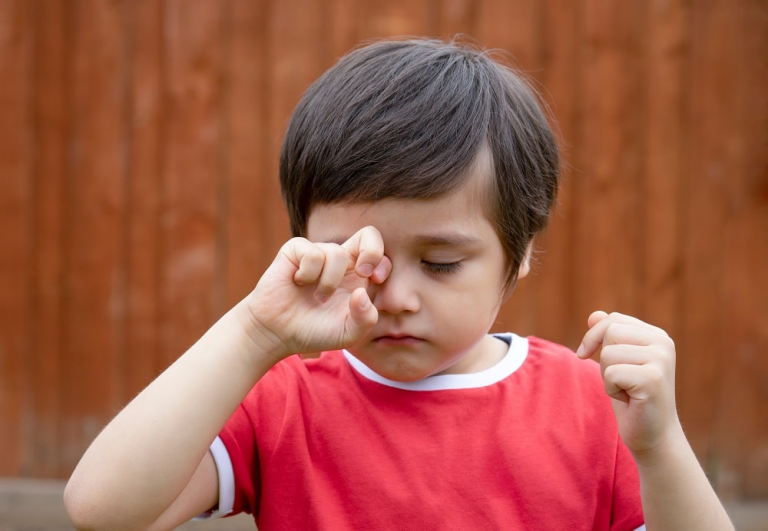How Weighted Pillows Can Improve Sleep for ADHD Kids

Children and adults worldwide are affected by ADHD (Attention-Deficit/Hyperactivity Disorder), a condition that has only recently garnered the necessary attention from medical professionals.
In the past, many parents were unsure how to manage the symptoms of ADHD—such as inattention, forgetfulness, hyperactivity, and loudness—which often led to the disorder being inadequately treated or not treated at all. This lack of treatment sometimes resulted in more significant and severe mental health issues over time.
Today, open discussions about ADHD have become more prevalent on social media, leading to a broader understanding that ADHD presents in a wide range of symptoms and behaviors.
This means that treating ADHD effectively requires a personalized approach, as there is no “one-size-fits-all” solution. If you have a child who struggles with ADHD, it’s crucial to address the issue promptly.
You may need to help your child develop specific coping mechanisms to help them function more smoothly in daily life. One effective strategy involves establishing a consistent sleep routine with the use of weighted pillows and blankets. Here’s why this can be beneficial!
Connection Between ADHD & Sleep

For children with ADHD, maintaining a consistent sleep schedule is even more critical, as lack of proper rest can exacerbate their symptoms, making them more challenging to manage.
The reality is that most kids with ADHD struggle with sleep. They often don’t get enough rest, which makes it difficult to optimize their sleep routine. These children may face various sleep-related issues, such as insomnia, trouble waking up, or difficulty staying asleep.
While your child may sleep well during infancy, you might notice sleep regression as they enter their toddler years. This can make mornings, whether getting ready for school, daycare, or a busy day ahead, a challenging task. It’s important to recognize that sleep regression can be a symptom of underlying issues.
The core of the problem is that without adequate sleep, children with ADHD can become more irritable and hyperactive, making it even harder for them to focus. This creates a vicious cycle where lack of sleep worsens ADHD symptoms, and those symptoms, in turn, make it difficult to sleep.
Children need plenty of rest for their brains to develop and function optimally. This is why it’s essential to establish and maintain a consistent sleep schedule. During sleep, children’s muscles relax and undergo repair, their cognitive abilities are refreshed, and their circadian rhythm is supported.
Creating a Sleep Schedule for ADHD Kids

We’ve all experienced making schedules and plans that seem perfect on paper but fall short when put into action. The key to successfully establishing a sleep schedule for your child is to involve them in the process.
Discuss their symptoms and feelings with them, and try to understand what might help them achieve a calm state of mind that’s conducive to sleep. Don’t hesitate to experiment with different approaches to find what works best. Here are some suggestions:
Create a Calm, Quiet Environment: A peaceful and distraction-free environment is essential for everyone, but it’s especially important for children. Make sure your child’s bedroom is comfortable and quiet, free from any distractions. If your child tends to get fidgety or anxious as bedtime approaches, consider using Quiet Mind’s weighted cuddle pillow, weighted blankets, and soft lighting to create a soothing atmosphere.
Establish a Relaxing Bedtime Routine: Jumping straight into bed after a long, active day can make it difficult for your child to fall asleep. Encourage relaxing activities before bed, such as reading, taking a warm bath, or listening to calming music. These activities can help your child wind down and transition into sleep with a quieter mind.
Maintain Consistent Bedtimes and Wake-Up Times: Consistency is key. Setting the same bedtime and wake-up time every day helps regulate your child’s circadian rhythm, allowing their body to get into a natural sleep-wake cycle. Whether it’s a school day, weekend, or summer break, sticking to a regular schedule is crucial.
Limit Screen Time Before Bed: We know that scrolling through devices and exposure to blue light can disrupt melatonin production, and this effect is even more pronounced in children with ADHD. To promote better sleep, make sure phones, tablets, and TVs are turned off at least an hour before bedtime. If you’re unsure, leading by example is always a good approach.
In addition to these tips, you can take other steps to ensure your child sleeps well, such as avoiding sugary foods late at night and encouraging regular exercise. However, the suggestions above typically work effectively in helping children get the rest they need.
How Weighted Pillows Help
Weighted pillows are designed to give kids with ADHD a comforting “hug,” serving as an effective distraction technique. They help redirect stress, calming your child’s fight-or-flight response and activating the parasympathetic nervous system to prepare the body for sleep.
These pillows also provide gentle pressure that enhances proprioception, helping kids feel more grounded. This pressure releases “feel-good” hormones, which work to alleviate stress and anxiety.
For a long time, children with ADHD have been misunderstood, but fortunately, that’s beginning to change. If your child has ADHD, it’s crucial to offer them the support and understanding they need, even when it’s hard to fully grasp their experience. Maintaining a consistent sleep routine with the help of weighted pillows can greatly improve their sleep quality, making their daily lives more comfortable and enjoyable.






